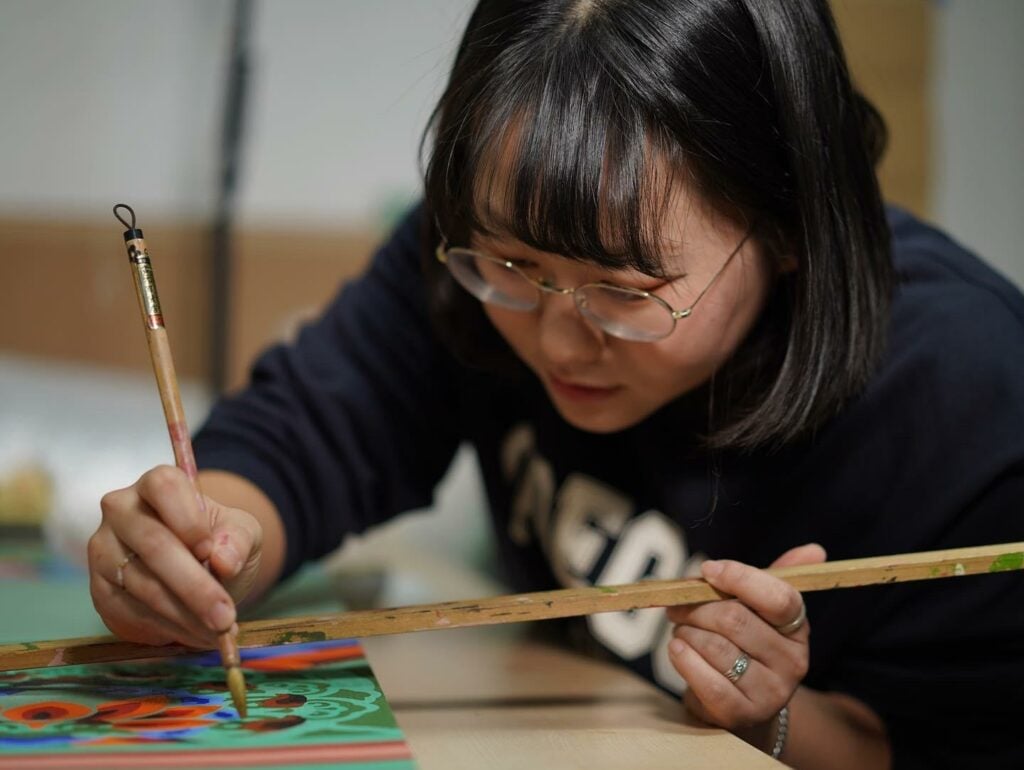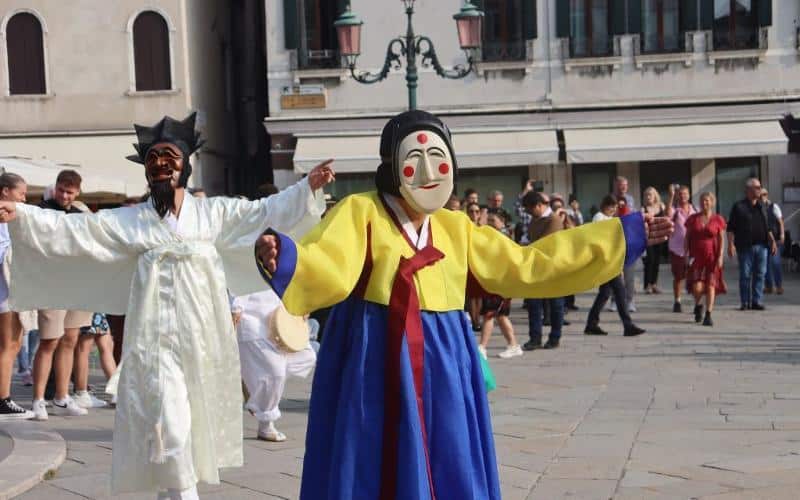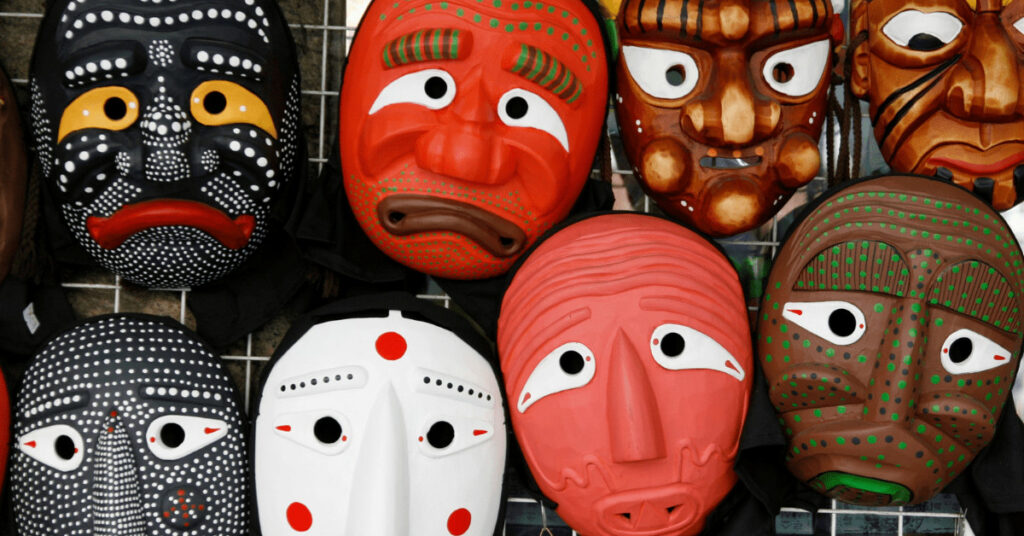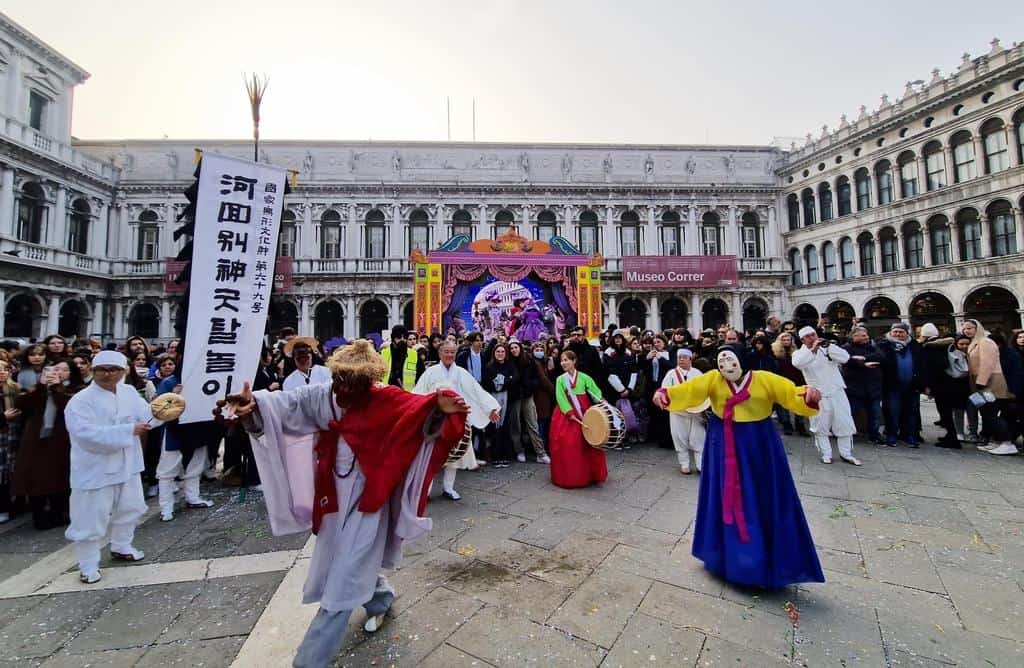6 minutes read
With the support of Google.org, Google’s philanthropic arm, AVPN partnered with Merry Year Social Company (MYSC) to launch the USD 1 Million Digital Transformation Fund in 2021. The Fund aims to support non-profit organisations in South Korea to support small and medium business owners and job seekers from underserved communities who were affected by the COVID-19 pandemic. In 2022, five subgrantees were selected, and AVPN and MYSC are running an impact series to tell the stories of the subgrantees. In this fifth story, we are featuring YBS EDU Social Cooperative (hereinafter YBS EDU), which creates an environment to revitalise traditional Korean culture.
Discovering the Joy of Communication: Ever-increasing Time of Collaboration
Intangible Cultural Heritage (ICH) is the heart-felt culture from the past that a society is built upon – from the patterns drawn on palaces, knots decorating the hanbok, to performance such as playing of traditional instruments and dancing – which is passed down from person to person. There are people who continue to remember these traditional cultural practices. ICH is a system influenced by Japan, where the government designates and protects people who continue on as practitioners of traditional culture. Culture protected in this way keeps its original essence while being able to be adapted, little by little according to changing times.
Yujin is a Dancheongjang (ornamental painting) painter, creating exquisite paintings found on craft items and wooden buildings, such as palaces and temples. Junha is an Andong Byeolsingut Tallori (Andong Mask Dance Drama) dancer who participates in the mask dance at the Andong Hahoe Folk Village.
In Summer 2023, Yujin became associated with YBS EDU, a non-profit that works to preserve ICH, through her work as a Dancheongjang, and currently works at the organisation, continuing her craft. Every week, she plans ‘K-it Day,’ a campaign to revitalise intangible culture, such as dance and painting. Starting out doing unrelated work only to earn just enough money for supplies, Yujin is now glad to be able to make her livelihood through her craft. Meanwhile, Junha came to collaborate with YBS EDU after receiving an offer to participate in the Carnival Venezia in Italy. Having multiple mask dance groups coming together and collaborating was unfamiliar for Junha, which made the experience very exciting and meaningful for her. Both Yujin and Junha are actively thinking of how they can kickstart a virtuous cycle that harmonises both traditional Korean culture and modern life.
Yujin shares her thoughts, saying, “I think who I am now has changed a lot from who I was last year. While working on K-it Day, I realised there were a lot more people interested in traditional Korean culture than I had originally thought. People really like it when I introduce Dancheongjang to them. When I see them enjoy this craft, it creates pride in my skills and in traditional Korean culture. I am discovering the joy of sharing my craft.”

Junha adds by saying, “It is important to preserve cultural heritage, but I realised that we must also continue to think of ways we can utilise and articulate its value well. I am trying to play a role in promoting our performances to more and more people through efforts like translating lines in the talchum (mask dance) or other areas that need verbal communication for foreigners.”

Korea’s Traditional Culture Moving Beyond Original Preservation to Utilisation
Even though Korea was focused on preserving the original form of their traditional culture, it is now gradually attempting to move towards increasing utilisation. Several organisations are planning products and pioneering markets so people can take part in and embrace traditional Korean culture in their daily lives. However, there are cases in which an appropriate market cannot be developed.
This is because most intangible cultural assets are experiencing difficulties in promotion and distribution due to lack of relevant knowledge, ageing population of practitioners, and lack of manpower. In this case, even if intangible cultural assets were developed using traditional skills, the production and manufacturing companies unrelated to traditional Korean culture would benefit disproportionately from it, rather than the practitioners themselves.
As a start, YBS EDU is holding networking events, lectures, and digital innovation education centred on intangible cultural assets. Through these engagements, they hope that ICH practitioners and newcomers can meet with each other, help the general public learn about various aspects of traditional Korean culture, and generate sustained interest in it.
Passing it on from Person to Person: YBS EDU’s Work in Protecting Intangible Cultural Heritage
YBS EDU was established in 2020 and is a public interest corporation and a non-profit social enterprise specialising in world heritage content. It comprises members who primarily majored in the arts, including history and music. At first, the founding members mainly focused on cultural tourism and providing tourism resources. They would have local instructors introduce the region’s tangible cultural assets.
However, this approach was discontinued, as COVID-19 decimated tourism and travel all over the world, throwing their plans into disarray. Despite the challenges, the founding team persevered and continued operations, and even carried out many external services beyond their usual work. At this point, the YBS EDU was in a phase of soul-searching to re-discover their role and purpose, and their relationship with Korean Culture and Heritage.
Intangible cultural assets are its people, and if the people cannot perform their craft, a society’s culture, heritage, and landmarks can get eroded and forever lost to time. For example, the restoration of the Sungnyemun Historical Landmark, which had been destroyed by fire in 2008, was only made possible because of the people’s efforts to preserve their traditional culture. While YBS EDU were initially focused on cultural tourism, the discussion sparked by the pandemic eventually led to a decision – to wholeheartedly contribute to Korea’s Intangible Cultural Heritage, ensuring it is preserved and cherished from person to person, through the generations.
Currently, as part of the Digital Transformation Fund, YBS EDU is carrying out a wide range of activities to revitalise traditional Korean culture, such as ‘K-it Day’ a campaign to showcase the breadth and diversity of various intangible cultural assets, and launched an online marketplace platform, K-tiful Store (kitfulstore.com), for ICH practitioners to sell their goods and services to consumers. In recognition of their work, YBS EDU was asked by Korea’s National Intangible Cultural Heritage Association to become its Secretariat. They gladly accepted the position, seeing it as a great honour and a significant endorsement of their work.
In Korea, there are only 6,952 people, mostly in their 20s to 40s, who have been trained as national intangible heritage practitioners (and becoming living cultural assets) or preservation organisations. Furthermore, they continue working on their crafts and pass down their work without receiving any special pay. To ensure a brighter future for ICH, YBS EDU is also looking to create spaces where younger people can contribute to their cultural heritage, identify ways to make a living through ICH, and play an important role in preserving it.
A Fund that Provides a Process of Finding New Opportunities, Not Failures
There are many different paths that social innovation organisations can take to address social problems. Among them, much consideration is needed in deciding how to create social value while also keeping an organisation’s overall health in mind. Even if the work is carried out with sufficient consideration for hygiene factors like budgeting, resourcing and strategy, one might get a different result than originally expected. That is why YBS EDU believes that the flexible support from the Digital Transformation Fund has greatly helped them in viewing setbacks as a natural process to finding new approaches and opportunities, rather than just failure in of itself.
Seulgi Lee, director of YBS EDU, who manages the Digital Transformation Fund, shared her thoughts, “The K-culture market has grown a lot, including K-drama, K-food, and K-beauty, and more and more people are enjoying traditional Korean culture, such as filming vlogs while wearing hanboks and buying museum goods. We are going to try various things to capitalise on this trend. We want to create a revenue model that allows people to directly see, touch, and consume performances, crafts, and other activities in-person. At the same time, we plan to operate an online platform in parallel to promote communities and overseas marketing that goes beyond regional limitations. Through this fund, we gained a lot of confidence in the appeal and necessity of the work we do. We will continue to take on various challenges so that the world and intangible cultural assets can be connected more closely, and that Korea’s cultural heritage practitioners can continue their good work and thrive.”



















